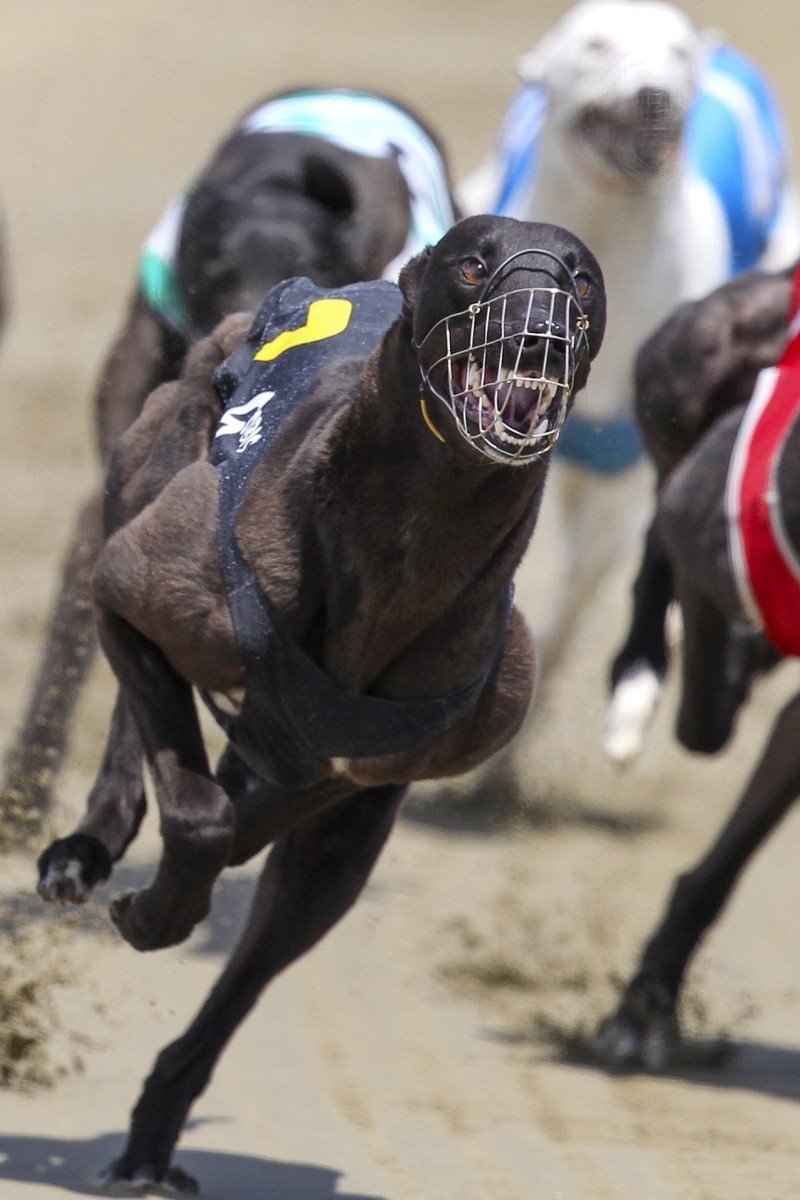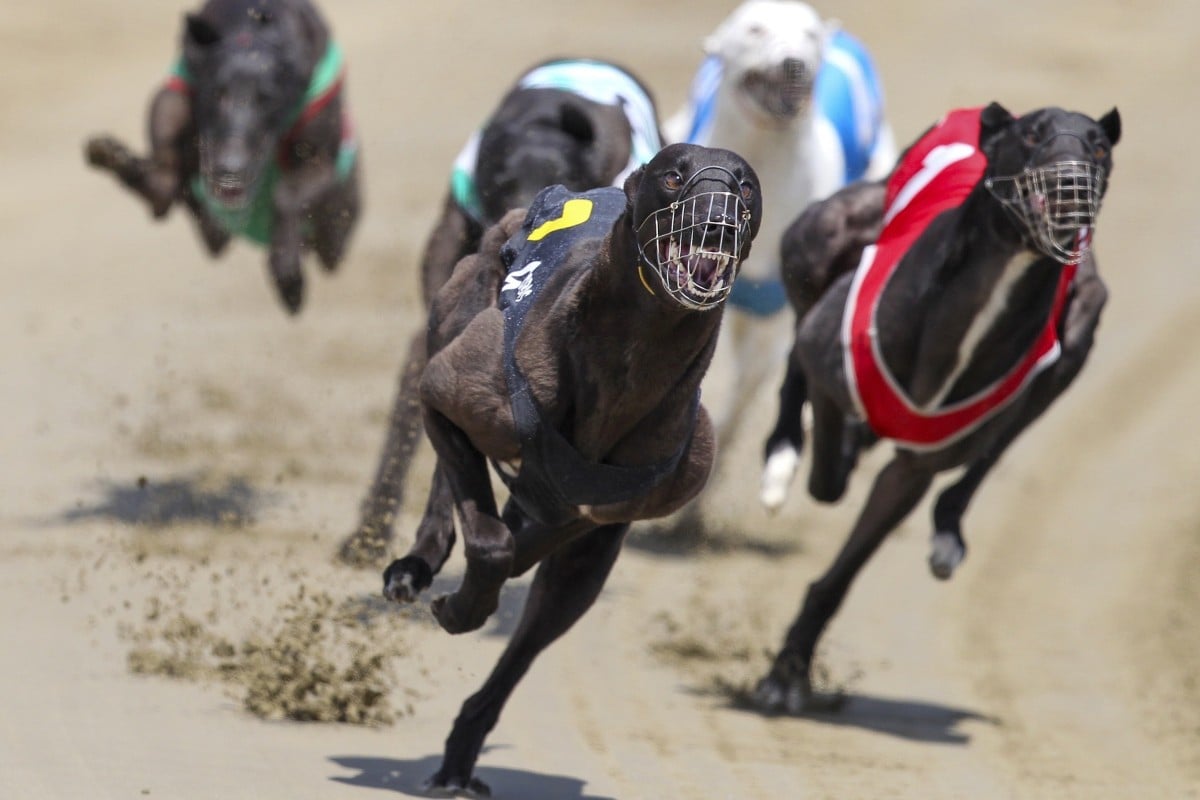
Listen Up: New Zealand to end greyhound racing by 2026 amid dog welfare concerns
Practise your English with our listening exercises: play the audio, answer the questions, and check the answers at the bottom of the page.
 New Zealand will ban greyhound racing by 2026 to protect dogs. Photo: AP
New Zealand will ban greyhound racing by 2026 to protect dogs. Photo: APQuestions
1. When will New Zealand stop greyhound racing?
A. 2025
B. 2026
C. 2030
D. information not given
2. What happens to many injured greyhounds in New Zealand?
A. They are adopted.
B. They end up in dog cafes.
C. They are sent to zoos.
D. They are killed.
3. Which word can replace “distaste” in the podcast?
A. support
B. disapproval
C. indifference
D. confusion
4. On which part of the body do racing greyhounds suffer the most injuries?
A. head
B. back
C. legs
D. information not given
5. What has Greyhound Racing New Zealand promised to do?
A. find all retired dogs a new home
B. adopt all retired dogs
C. ban dog races
D. all of the above
6. Which of the following best describes how the Society for the Prevention of Cruelty to Animals responded to New Zealand’s plans to ban greyhound racing?
A. It has mixed reactions.
B. It opposes it.
C. It strongly supports it.
D. It does not have any opinion.
7. When was greyhound racing most popular in the United States?
A. in the 1940s
B. in the 1960s
C. in the 1980s
D. in the 2010s
8. If something is “legal”, it is …
A. allowed by the law
B. banned by the law
C. enjoyed by a large number of people
D. likely to injure or harm somebody
9. Which country has a history of greyhound racing but no longer has any tracks?
A. Australia
B. the United Kingdom
C. Mexico
D. Ireland
10. Based on your understanding of the podcast, why did the New Zealand government set up a new law hours after announcing the end to greyhound racing?
A. to appease animal rights activists
B. to prevent the unnecessary killing of greyhounds
C. to encourage other countries to ban greyhound racing
D. to comply with international animal welfare standards
11. What do the numbers mentioned in the podcast refer to?
(i) 1,000
(ii) 2,900
(iii) 5 million
Answers
1. B
2. D
3. B
4. D
5. D
6. C
7. C
8. A
9. C
10. B
11. (i) number of people employed in the greyhound racing industry in New Zealand; (ii) number of racing greyhounds in New Zealand; (iii) number of people living in New Zealand
Script
Adapted from Associated Press
Voice 1: New Zealand’s government has said it plans to outlaw greyhound racing because too many dogs are hurt or killed. This spells an end to the practice in one of the few countries where it still operates.
Voice 2: The racing of greyhounds as a betting sport was wildly popular in the last century. But many dogs are euthanised because of race-day injuries or because homes cannot be found for them after their short careers end. This has provoked animal welfare campaigns and a growing public distaste for the sport.
Voice 1: According to Racing Minister Winston Peters, the government plans to stop the racing in 2026. The time will allow the 2,900 racing dogs to be rehomed and more than 1,000 people employed in the industry to find other work.
Voice 2: New Zealand’s greyhound racing industry has faced repeated reviews over its dog safety record in recent years, with multiple reports urging sweeping changes. Peters said the industry had made progress – but not enough. The number of dogs killed has been restricted by policies governing when dogs can be euthanised. Rehoming programmes that send retired New Zealand greyhounds abroad as pets when homes cannot be found domestically have also helped. But the percentage of dogs injured remains high.
Voice 1: Greyhound Racing New Zealand, an industry group, accused the government of not recognising improvements made, including its commitment to tracking the care of every retired dog for the rest of its life. The Society for the Prevention of Cruelty to Animals praised the government for showing compassion to dogs that are forced to work in a dangerous gambling industry.
Voice 2: Commercial greyhound racing continues in the United States, Australia, the UK and Ireland. In the US, its popularity peaked in the 1980s, and the number of states allowing the practice has dwindled since then amid reports of dog mistreatment and the explosion of other gambling options. Greyhounds have become popular as pets in the US. In fact, New Zealand has sent dozens of dogs to new owners there when homes could not be found in the country of 5 million people.
Voice 1: Greyhound racing is also legal in Australia, where critics have decried the practice and the rules governing it vary by state. Commercial racing currently operates throughout the United Kingdom and Ireland. However, the Scottish parliament is considering a ban. The practice remains legal in Mexico and Vietnam, but there are no longer operational tracks in either country.
Voice 2: Hours after it announced the end of greyhound racing, New Zealand’s government passed a law to prevent dogs from being killed while the industry winds down. It will be allowed only if a veterinarian deems it unavoidable. This law aims to prevent owners from euthanising dogs for economic reasons.